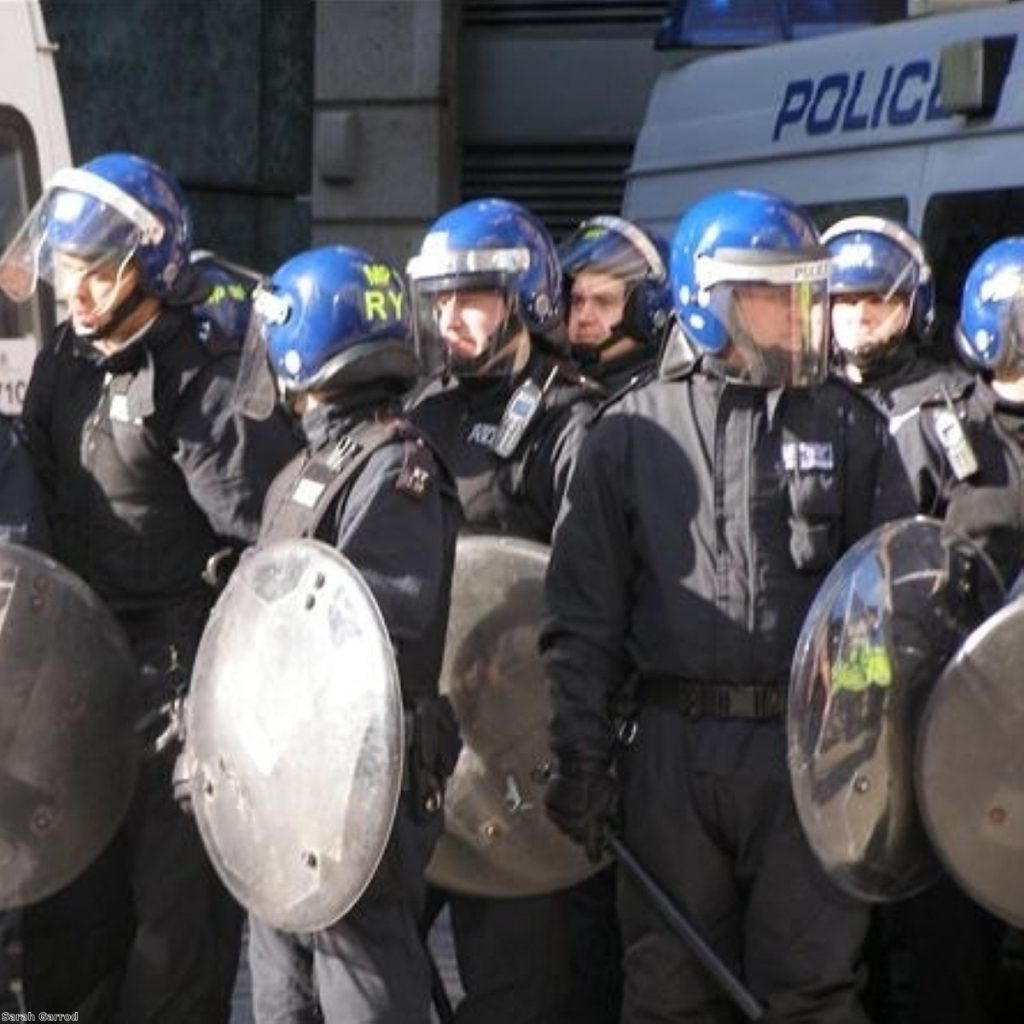Woman ‘miscarried’ after G20 police attack
By Ian Dunt
A woman suffered a suspected miscarriage after being kicked and pushed by shields and batons during the G20 protests in London earlier this year.
The attack has prompted the Independent Police Complaints Commission (IPCC) to call for immediate reform of the way the police handle protests.
The 23-year-old woman was attending the climate camp demonstration around Bishopsgate on April 1st, when she alleges an attack by police left her with heavy vaginal bleeding.


Following consultation with her GP, the complainant was informed that the bleeding could have been a miscarriage, although the likelihood she had miscarried was low.
She was not aware when she attended the demonstration that she might have been pregnant and this was never confirmed.
In an uncharacteristically stern statement, IPCC commissioner for London Deborah Glass condemned the manner in which police conducted the G20 operation.
“While this young woman’s alleged injuries were more serious than most, her experience appears to have been typical of many peaceful protestors on April 1st,” she said.
“She was caught up in what appears to have been a frightening experience over which she had little or no control.
“Like many others that day, she says she had no prior warning of the police intention to use force in containing the crowd, and no prior warning of a containment tactic that prevented her leaving.”
The watchdog concluded that an officer did forcibly push the women using a short shield, in an attempt to move the crowd backwards – a tactic which, Her Majesty’s Inspectorate of Constabulary (HMIC) stated recently, has been developed locally, has not been medically assessed and does not form part of any national training or the current ACPO public order manual.
The complainant was not allowed to leave the area of Bishopsgate for some four to five hours in order to make herself more comfortable with regard to her bleeding.
The IPCC called for the Metropolitan police to immediately respond to three specific recommendations in the recent HMIC report which it believes relate to the incident.
Firstly, protesters and public should be made aware of likely police action in order to make informed decisions.
Secondly, a release plan to allow vulnerable or distressed persons or those inadvertently caught up in the police containment to exit should be fully formulated before the event.
Thirdly, a review of current public order policing needs to be conducted immediately.
A Met spokesperson said: “Though we note that the medical opinion was that there was a low probability of the complainant being pregnant, there is a real opportunity for lessons to be learnt here.
“A senior Metropolitan Police Service officer has offered to meet with the complainant to discuss the potential learning from this incident and apologise for distress caused.”
During the course of the investigation the woman told the watchdog that her complaint was about the tactics used by the Met as a whole, rather than any individual officer, so it is highly unlikely any particular officer will be singled out for punishment.
Liberal Democrat home affairs spokesman Chris Huhne said: “This report underscores the need for a radical rethink of the way in which protests are policed.
“This is particularly serious because the protests at Bishopsgate were peaceful and did not warrant these strong-arm tactics.”
The report comes just days after the IPCC handed its file on the death of Ian Tomlinson to the Crown Prosecution Service (CPS), which is yet to say whether it will proceed with charges against the officer involved.
Four other investigations following complaints by police tactics at the protests have also been completed as the Met continues to suffer the shockwaves of its actions on the day.
The IPCC has sent today’s report to the Met, and to HMIC to feed into its ongoing review.












